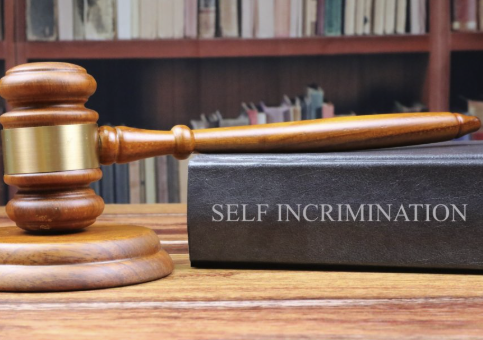Theme: Walk by faith
Lesson 4: Do not presume to judge, Love instead
Judgment is usually passed by those who KNOW the standard expected in any given context. When Paul is speaking here he is directing his comments on those who have been listening and agreeing gleefully in chapter 1 , because they know they standard set by God, they know the law so they despise those who do not know the law. So position themselves in judgment of those who were ignorant.
1Therefore you have no excuse, O man
- You shall not say you didn’t know
- you shall not say it was unclear
- you shall not say you were deceived
Word fact check
- Inexcusable/anapologetos – they have no defense. Used similarly towards the pagans in Romans 1:20 because they may not know the law BUT they disregard God though he is revealed through His creation. They are similarly wilful in their arrogance and and neglectful in their conduct
Judges 2:19 (ESV) – 19But whenever the judge died, they turned back and were more corrupt than their fathers, going after other gods, serving them and bowing down to them. They did not drop any of their practices or their stubborn ways.
- Wilful neglect – not Your will but my will
- Wilful neglect – disregard, ignore as unimportant
every one of you who judges
Word fact check
all of you /pas ho krinon – without exception, not discriminating or segregating, collectively
The word ‘judges‘ implies there is an established rule of law, there would be an understanding that a code has been declared prior to a judgment being made. You either follow the code or break it. If you choose to break it the penalty is enforced according to the law. In Romans 1, Paul is expertly showing us things that pagans got up to, and it felt satisfying to the Jews who knew the law that Paul was pointing out the unworthiness or despicableness of the gentiles. That is a prejudice self-righteous Christians also exhibit when they pass judgement in today’s society and one we should endeavour to overcome. Therefore he is challenging those who would judge to self examine before opening their mouths, and that would have caused a great upset in the ones who felt self righteous, as it would still do today.
Reflection
Why can we not have an excuse?
John 16:8–11 (ESV) 8 – And when he comes, he will convict the world concerning sin and righteousness and judgment: 9concerning sin, because they do not believe in me; 10concerning righteousness, because I go to the Father, and you will see me no longer; 11concerning judgment, because the ruler of this world is judged.
If Holy Spirit is in you , you know because you operate in synchronicity with Him.
Ponder and Journal
YOU CANNOT judge unless you are good, the Lord Jesus tells us that only God is good. This point makes us understand even more why we are privileged to have grace. We commit the sin of hypocrisy when we judge. We lie to ourselves and others that we are better than them and are in a place to judge. James tells us only God can judge. So if we judge incorrectly through prejudice, we sin against our neighbor because we want to affirm a certain outcome through loopholes that favor us in our own sin. In law you find judges being asked to recuse themselves because they cannot be impartial about a certain issue. That is all of us. Paul says for all have sinned and fall short of the glory of God, and are justified by his grace as a gift, through the redemption that is in Christ Jesus, whom God put forward as a propitiation by his blood, to be received by faith. This was to show God’s righteousness, because in his divine forbearance he had passed over former sins.
Practical examples in scripture
Righteous indignation
The ‘UNrighteous’ King
2 Samuel 12:5–6 (ESV) – 5Then David’s anger was greatly kindled against the man, and he said to Nathan, “As the Lord lives, the man who has done this deserves to die, 6 and he shall restore the lamb fourfold, because he did this thing, and because he had no pity.”
David sees clearly that what Nathan described was sin, and because he views himself as upright and aligning with God’s law, then he himself can pass judgement.
Ponder and Journal
Sticking to our story
The ‘DISobedient’ king
1 Samuel 15:20–21 (CSB) – 20“But I did obey the Lord!” Saul answered. “I went on the mission the Lord gave me: I brought back King Agag of Amalek, and I completely destroyed the Amalekites. 21 The troops took sheep, goats, and cattle from the plunder—the best of what was set apart for destruction—to sacrifice to the Lord your God at Gilgal.”
We like Saul know what God has demanded but we will only follow and listen to a point. We are influenced more by our surroundings and our peers, by pressures of what is familiar, more by our feelings and our desires than by God.
Ponder and Journal
Hypocrisy and bias
You are the man!
2 Samuel 12:7–9 (ESV) – 7Nathan said to David, “You are the man! Thus says the Lord, the God of Israel, ‘I anointed you king over Israel, and I delivered you out of the hand of Saul. 8And I gave you your master’s house and your master’s wives into your arms and gave you the house of Israel and of Judah. And if this were too little, I would add to you as much more. 9Why have you despised the word of the Lord, to do what is evil in his sight? You have struck down Uriah the Hittite with the sword and have taken his wife to be your wife and have killed him with the sword of the Ammonites.
Ponder and Journal
Paul’s conclusion of Romans 2:1
For in passing judgment on another you condemn yourself, because you, the judge, practice the very same things
- Failure
- Self Condemnation
Final Thoughts
In all three cases, God through Nathan, then Jesus as the Son, and Paul as the servant of God are painting the same picture. What can we learn practically from this?
Final questions to Ponder
- Have we ever elevated ourselves above others because we are saved and we know Christ, so we pity others and scoff at their lack of salvation?
- Can you identify any hypocrisy in your own thought patterns and life



Leave a Reply